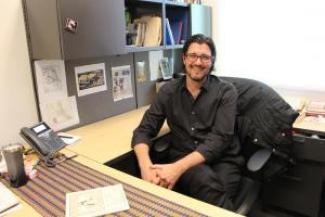Academia.edu profile: https://ucdenver.academia.edu/RyanCrewe
The Mexican Mission: Indigenous Reconstruction and Mendicant Enterprise in New
Spain, 1521-1600 (Latin American Studies Series, Cambridge University Press, 2019)).
https://ebookcentral.proquest.com/lib/cudenver/detail.action?docID=5797329
- Honorable Mention, Bolton-Johnson Prize for Best Book in Latin American History (2021); Honorable Mention, María Elena Martínez Prize for Best Book in Mexican History (2021)
Articles and Book Chapters
“The Troubles of Global Civitas: Segregation and Convivencia in Colonial Manila, 1580- 1700.” Cheiron, no. 1, (2022), pp. 148-173.
“Monsoonal Missions: Spanish Missionary efforts among Asian Trade Diasporas, 1570-1650.” In Hélène Vu Thanh and Inês Zupanov eds. Trade and Finance in Global Missions (16th- 18th Centuries) (Brill, 2021), pp. 151-83.
“Occult Cosmopolitanism: Convivencia and Ethno-Religious Exclusion in Manila, 1590-1650.” In Jos Gommans and Ariel Lopez eds. Philippine Confluence: Iberian, Chinese, and Islamic Currents, c. 1500-1800 (Leiden University Press, 2020), pp. 55-73.
“A Moluccan Crypto-Muslim before the Transpacific Inquisition (1623–1645).” In
Cristina Lee and Ricardo Padrón, eds. The Spanish Pacific, 1521-1815: A Reader of Primary Sources (Amsterdam University Press, 2020), pp. 171-89.
“Bautizando el colonialismo: las políticas de conversión en México después de la Conquista,” Historia Mexicana, vol. 68, no. 3 (2019), pp. 943-1000.
“Building in the Shadow of Death: Monastery Construction and the Politics of Community Reconstitution in Sixteenth-Century Mexico.” The Americas, vol. 75, no. 3 (2018), pp. 489-523.
“Connecting the Indies: The Hispano-Asian Pacific World in Early Modern Global History.” Revista Estudos Históricos, vol. 30, no. 60 (2017), pp. 17-34.
“Transpacific Mestizo: Religion and Caste in the Worlds of a Moluccan Prisoner of the Mexican Inquisition,” Itinerario, vol. 39, no. 3 (2016), pp. 463-485.
“Pacific Purgatory: Spanish Dominicans, Chinese Sangleys, and the Entanglement of Mission and Commerce in Manila, 1580-1620.” Journal of Early Modern History, vol. 19 (2015), pp. 337-365.
“Brave New Spain: An Irishman’s plot for Mexican Independence, 1642.” Past and Present, no. 207 (2010), pp. 53–87.

